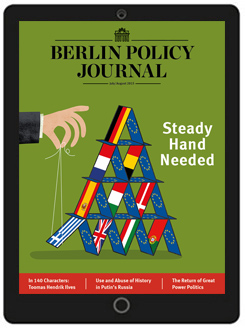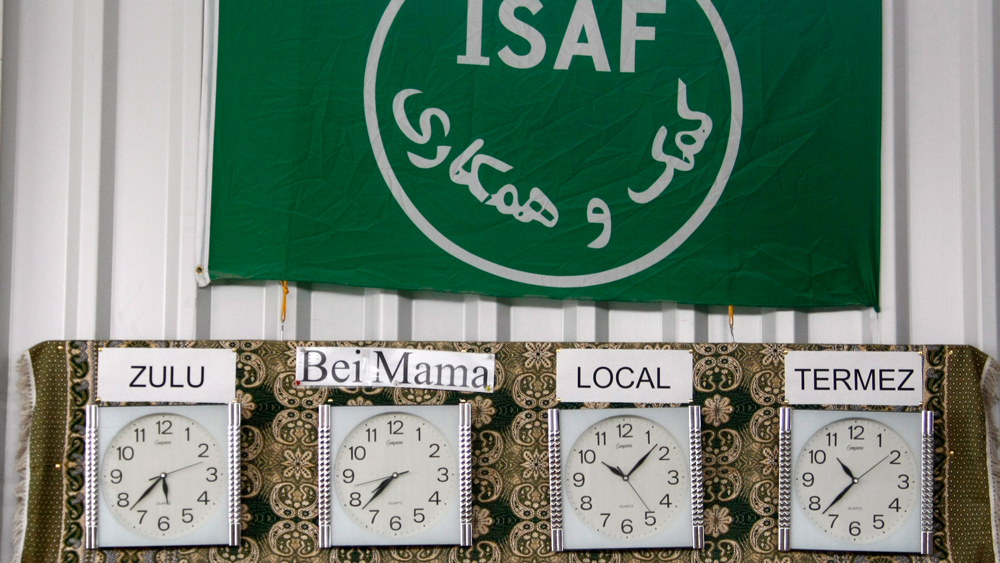After forteen years of a mostly fruitless war, and with the conflict still unresolved, the NATO coalition members have had different takeaways from the attempt at nation-building in the Hindu Kush.
Germany: Intervention Fatigue
Germany’s active role in international security has rendered its military more effective and increased European cohesion. After a series of engagements of dubious value, however – not least of which was the war in Afghanistan – Germans have grown tired of these operations.
Germany’s Bundeswehr has now amassed 20 years of foreign deployment experience, operating in theaters ranging from the Democratic Republic of the Congo to the Indian Ocean and, as part of NATO-led ISAF, playing a significant role in supporting the administration of Afghanistan. However, while the German public and elite once supported international operations, acceptance has given way to intervention fatigue. Critics see a seemingly endless parade of foreign assignments, many of which end in questionable results – in Afghanistan, for example, NATO successfully handed over responsibility to Afghan security forces, only to see the country return to violence due to a volatile mix of corruption, ethnic tension, and weak government institutions.
…
The United States: Missed Opportunities
In the wake of the wars in Afghanistan (and Iraq), Washington’s appetite for state-building and counterinsurgency has drastically diminished. The United States should draw three main lessons: better integrate opponents into the political process; undermine insurgent sanctuaries in neighboring states; and focus on local state and sub-state actors.
The war in Afghanistan began somewhat auspiciously in 2001. Roughly 100 CIA officers, 350 Special Operations Force soldiers, and approximately 15,000 Afghans – running as many as 100 combat sorties per day – overthrew the Taliban regime in less than three months, suffering only a dozen US fatalities. Some argued that the operation revitalized the American way of war. Over the next decade and a half, however, US and other NATO forces became embroiled in a long, bitter, and costly war that elicited much-needed introspection.
One of the most egregious early missteps was the failure to co-opt the Taliban after the 2001 Bonn Conference. Instead, the United States rounded up key Taliban leaders and sent them to prisons in such locations as Bagram Airfield and Guantánamo Bay, Cuba. But the Taliban represented a faction of Afghan society that could not be indefinitely excluded from the country’s political, social, and economic life. Consequently, Taliban leaders, including several who were considering reconciling with the Afghan government, slipped across the border into Pakistan and began to plan their insurgency.
…
The UK: Beware the Sofa Cabinet
British forces in Afghanistan suffered from a lack of strategic leadership in London – Prime Ministers Tony Blair and Gordon Brown took an ad-hoc approach, which impeded planning and communication. David Cameron has taken steps to reverse this.
Entering Afghanistan in 2001, the British army had a quarter century of successes behind it. And as these operations were against overmatched enemies and incurred minimal casualties, they enjoyed wide support. Thus the war in Afghanistan – against enemies who rejected Western values and were prepared to stand, fight effectively, and die – came as a strategic shock. At the same time, participation in the US-led Operation Iraqi Freedom from 2003 challenged both the British military’s logistical ability to sustain troops in both Afghanistan and Iraq and its government’s political ability to prevent the unpopularity of the Iraq war spilling over into public opinion on Afghanistan, a challenge to which it reacted too slowly.
When the UK became the lead nation in the Helmand Province, British forces met unexpected opposition and heavy fighting, bringing the initial plan for “ink spot” stabilization and development to a halt. Troop reinforcements were slow and dependant upon troop reductions in Iraq. While British forces could clear ground, they often lacked sufficient troops to “hold” it. Only in 2009, following complete British withdrawal from Iraq and the arrival of 20,000 US marines, was the UK able to execute counter-insurgency operations in Helmand.
…
France: Forming Its Own Model
Defeat in Afghanistan has limited Europe’s ability to act in Central Asia, but not necessarily France’s willingness to intervene abroad. France is now crafting its own model for military engagement, one that enjoys substantially greater public support.
As anyone familiar with French defense policy since 1945 would expect, France’s commitment in Afghanistan was marked by a strong desire for autonomy and freedom to maneuver – a principle that would put some distance between France and the US very early in the strategic planning process. French contributions consisted of land combat missions as early as January 2002, culminating in 2011 with more than 4,000 personnel (making it the fourth-largest contributor at the time), 89 of whom were lost.
The main reason for French skepticism was a sense of growing US unilateralism mixed with an erratic decision-making process, characterized by a controversial conception of the Global War on Terror and a bellicose hubris. The Bush administration was delivering a fuzzy strategic narrative: a mix of counter-terrorism, counter-insurgency, and democratization through regime change and nation-building. The muddled planning process offered little in the way of an exit strategy from a country known as the “graveyard of empires” – and in a matter of months, Iraq, according to Michael Clarke, had “sucked all the strategic air out of Afghanistan in the policy-making offices of Washington, London, Brussels and Mons”, permanently diverting the US from the Hindu Kush while rendering the transatlantic relationship toxic, especially at the Franco-US level.
…
Read the complete article in the Berlin Policy Journal App – July/August 2015 issue.








